Xtra tackled a great many books over the past year. But that’s just scratching the surface. It’s hard to do justice to all the LGBTQ2S+ authors out there and their myriad works published in 2023. Here are a few exciting titles that we missed, as selected by Xtra’s editors and book writers. What else did we overlook? Let us know on our social media channels like X, Reddit, Instagram or TikTok.
In Memoriam by Alice Winn
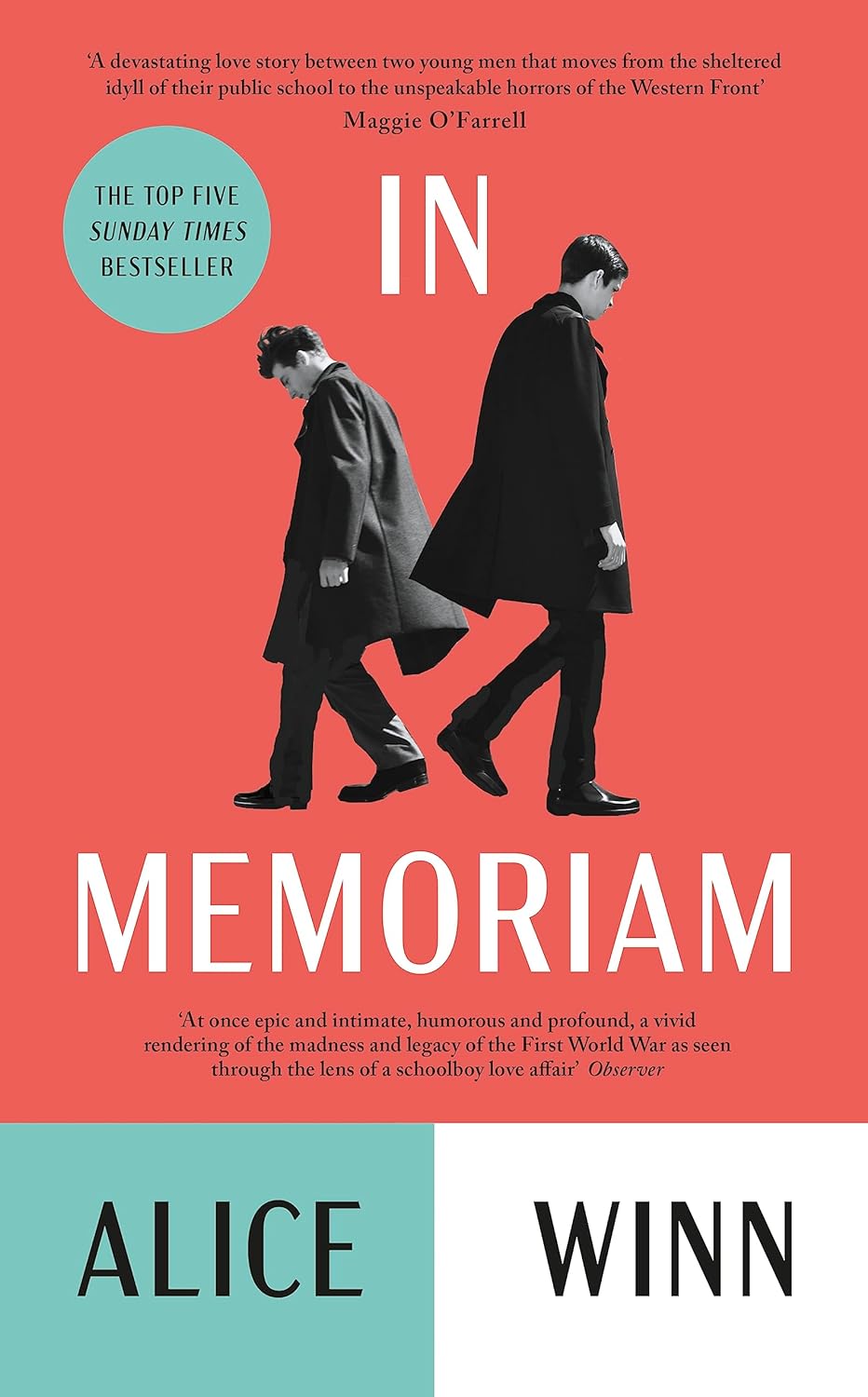
Alice Winn queers the First World War in In Memoriam, an epic novel about the generation of young men who brutally lost their lives in the name of King and country. At the heart of the story lies two school chums, Henry Gaunt and Sidney Ellwood. Teenagers at the same English boarding school, they are secretly in love with one another. This fact, however, is lost on both—even with all the furtive sex happening in the dorms.
When war breaks out, students begin to enlist. The names of the dead soon start populating the pages of the school newspaper, galvanizing the students. Half-German, Gaunt is pressured by his mother to enlist to save the family’s reputation. He reluctantly agrees, if only to avoid his feelings for Ellwood. After receiving word that Gaunt is injured in battle, Ellwood—only 17—joins his friend at the front. It is in these trenches where the two of them finally express their love for one another.
Winn does a wonderful job of contrasting the power of love against the devastation of war. It’s not an easy read, though. Death is death is death in the cold mud of no man’s land, and the author pulls no punches in describing the carnage of war. This is Winn’s first book, and she did a lot of research, basing the lives of many of her characters on the real men who fought and died. Many had no idea what they were walking into. It’s hard not to see the correlation with AIDS—a whole generation of young men being snuffed out before their prime. A powerful debut.
—Christopher DiRaddo, contributor
Boys Weekend by Mattie Lubchansky
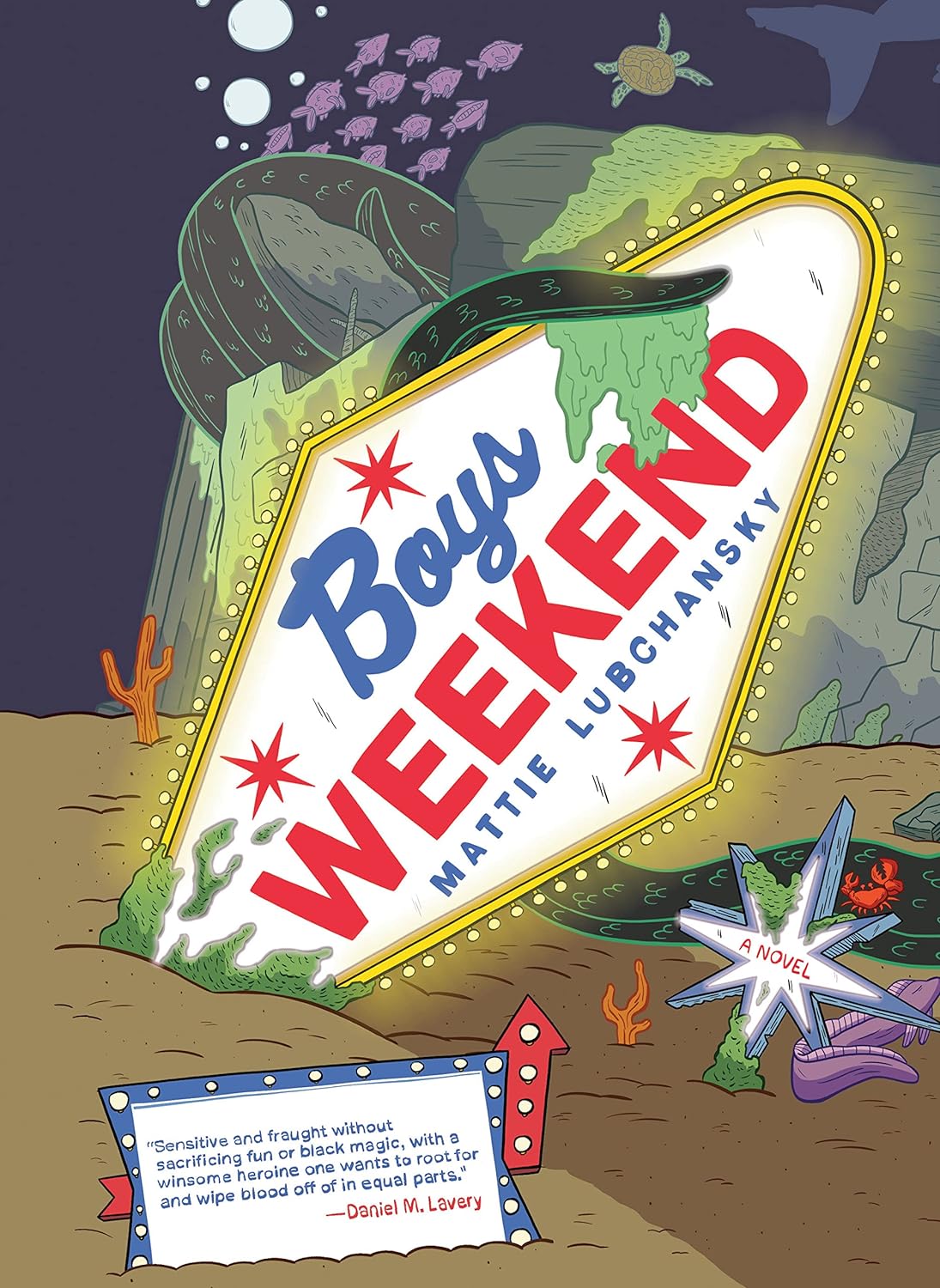
Cartoonist Mattie Lubchansky’s Boys Weekend—their full-length graphic novel debut—is both a joy and a serious technical achievement, somehow combining subtle, poignant interpersonal drama, serious comedic chops and blockbuster horror/sci-fi into a satisfying whole. The book follows Sammie, a non-binary person at a stag do for their oldest friend on a Vegas-like hyper libertarian party island. The boys (and one girl) in attendance, and their interactions with Sammie, range from benevolently oblivious to cruel, and Sammie’s exhausting struggle to perform happiness and attempt connection in that environment hits harder than almost any book on transness I’ve read. Meanwhile, Sammie’s the only one who seems to notice that a bloodthirsty cult is picking off hotel guests.
The world-building of the graphic novel’s near-future techno-hell is exquisite, providing opportunities for both comic relief and further depth—as well as some first-class tentacle art in Lubchansky’s distinct, madcap style. But it’s the complexity of the book, and its intricate portrayal of trans mourning, that stuck with me the most: the ways in which we might grieve our old selves and the innocence of our old friendships, and how we navigate the new, spiky, bright world we’ve re-entered.
—Eli Cugini, contributor
Muster Points by Lucas Crawford
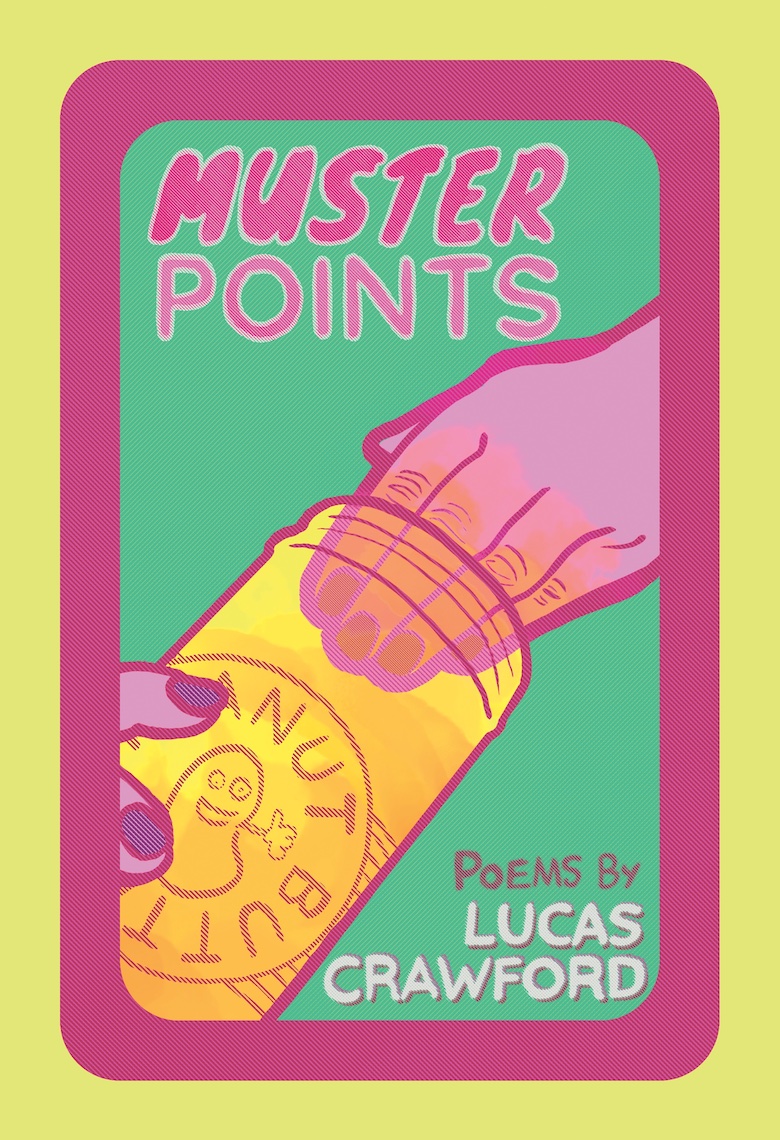
Time to give some queer poetry some love, and I adored Lucas Crawford’s spring release, Muster Points, so much, so that’s easy to do. The book is at once intellectual and whimsical, self-aware and able to poke fun at itself. These are poems Crawford began writing when trapped at the Banff Centre, where he’d been working as a poetry mentor, in March 2020 when the COVID-19 pandemic hit. There is something deliciously bodied about these poems, often literally: there is a lot of sex and food. Or perhaps, those aspects stood out to me on account of … speaking to my interests? And bodied, also literally, in ways that are not cishet, thin or otherwise conventional. Which is to say that the bodies in these poems are fat, trans, queer, kinky, unabashed, mentally ill. A poem called “Pet Names” that appears toward the end of Muster Points stands out to me, with Crawford writing: “I have been animals of the forest, of the sea, of all that is sweet in tooth and queer in claw.”
—Tara-Michelle Ziniuk, senior editor, politics
Transland: Consent, Kink & Pleasure by Mx. Sly
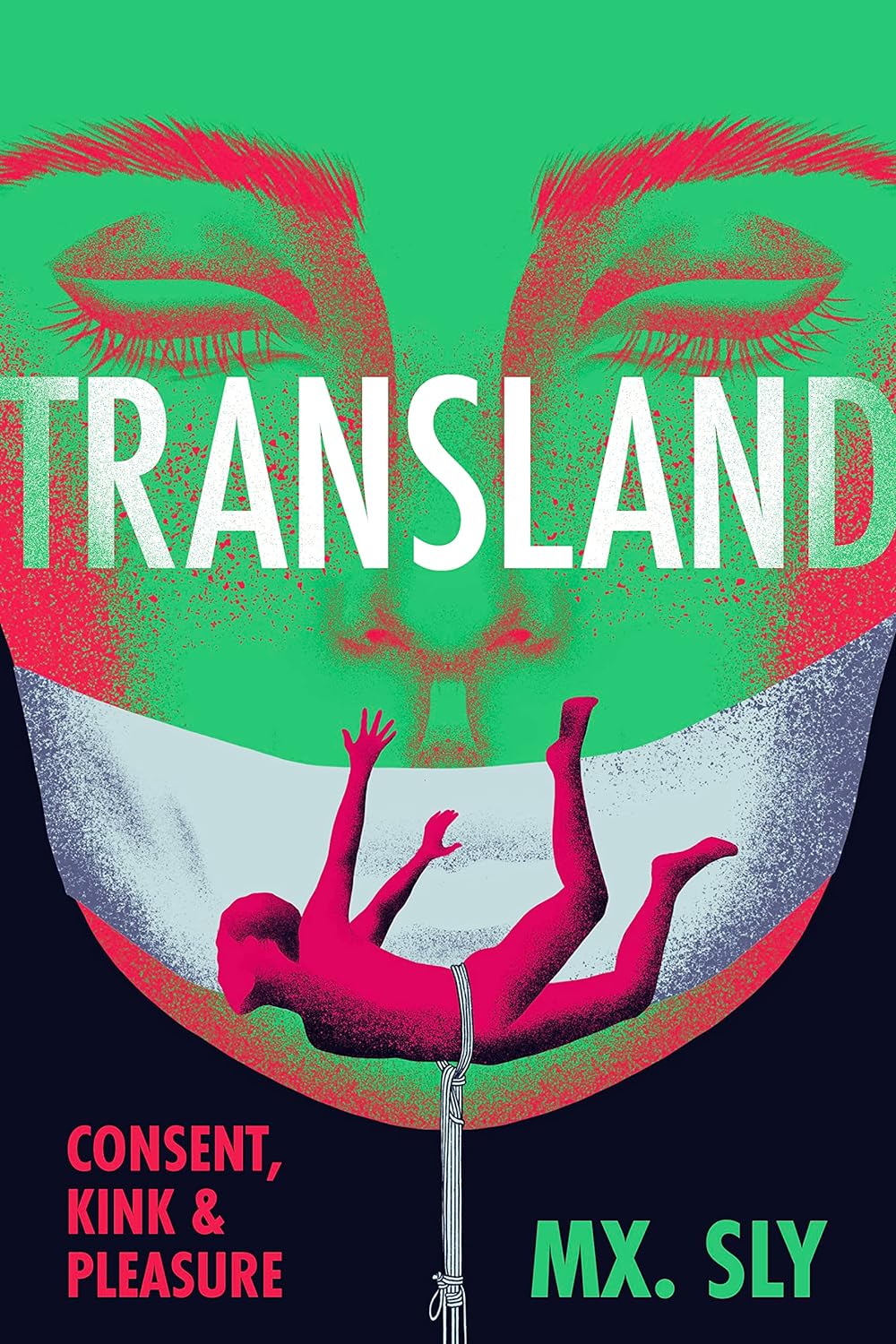
Transland: Consent, Kink & Pleasure is a themed memoir in essays, which happens to be my favourite memoir form because of how it can gather disparate moments in the timeline of a life, highlighting threads that would otherwise get lost in the weave. Mx. Sly, a non-binary writer, theatre creator and producer, writes with nuance, lucidity and humour about their years in kink communities across Canada and elsewhere, with a focus on their own always-emerging gender and sexual identities, and on how kink practices can help survivors of sexual trauma to work through shame and toward liberation. Sly’s language is straightforward, with little embellishment, which makes the book an easy read despite the sometimes-heavy subject matter.
The sex scenes in Transland are genuinely hot, and Sly’s descriptions of sex parties, BDSM scenes, play partner dynamics and the ecstatic sensation of subspace are tender and evocative. They dip into corniness from time to time: “If rope is a drug, then riggers are my drug dealers,” they write in one essay about rope bottoming. But as the sadist narrator of Davey Davis’s similarly BDSM-grounded novel X declares, “Pain is corny.” Sly’s stumbles in that territory are generally eclipsed by their observant, honest engagement with the possibilities and pitfalls of kink communities.
Underpinning the anecdotes about relationships, sex, gender identities and play parties is the reality that big North American cities are becoming less and less affordable. Sly draws subtle attention to the strategies people resort to in order to survive in these cities as artists, sex workers and in other creative and/or low-wage jobs. At its best, Transland shows us how, when practised consensually, kink can transport people, perhaps especially queer and trans people, into a realm beyond the drudgery of the everyday, beyond past pain and future worry, into a form of extreme presence, a calm and euphoric inhabitation of one’s own body and being.
—H Felix Chau Bradley, contributor
All Night Pharmacy by Ruth Madievsky
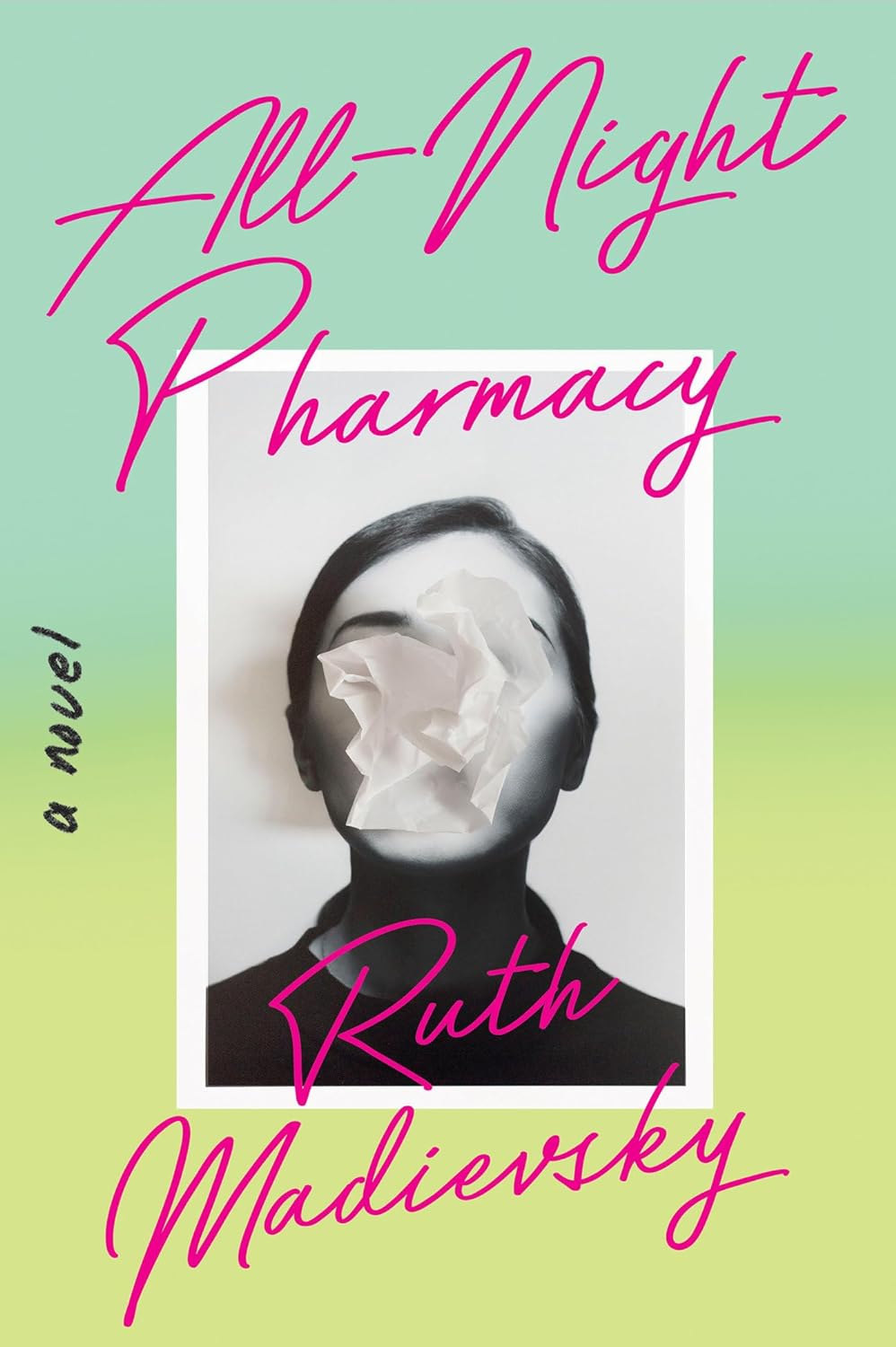
Ruth Madievsky’s All Night Pharmacy starts as a fever dream: an unnamed narrator and her sister, Debbie, spend their nights high off of whatever’s offered to them at Salvation, their favourite bar. There they meet energy healers, wannabe actors and people as generally lost as they are. The pair spiral deeper into their toxic and codependent dynamic, until one night, Debbie disappears.
From there, Madievsky serves up twist after twist. After her sister’s mysterious departure, our unnamed narrator doesn’t immediately search for her: instead, she gets a job at an emergency-room pharmacy—and promptly starts stealing pills to sell on the side. It seems like she’s destined to continue courting chaos, but then one day, she meets Sasha—a refugee who claims to be a psychic and also, coincidentally, the narrator’s spiritual guide.
As she grows closer with Sasha, the protagonist decides to get sober, and as she does she’s forced to reflect on the forces that have shaped her world: trauma, queerness, Jewish mysticism and, of course, her sister, whom she isn’t sure she wants to find.
Madievsky’s writing—harsh and gritty, but also vulnerable and compassionate—brings her characters to life. She perfectly captures the glamour of being young and lost, and the foreboding that grows once that glamour begins to wear thin.
—Ziya Jones, senior editor, health
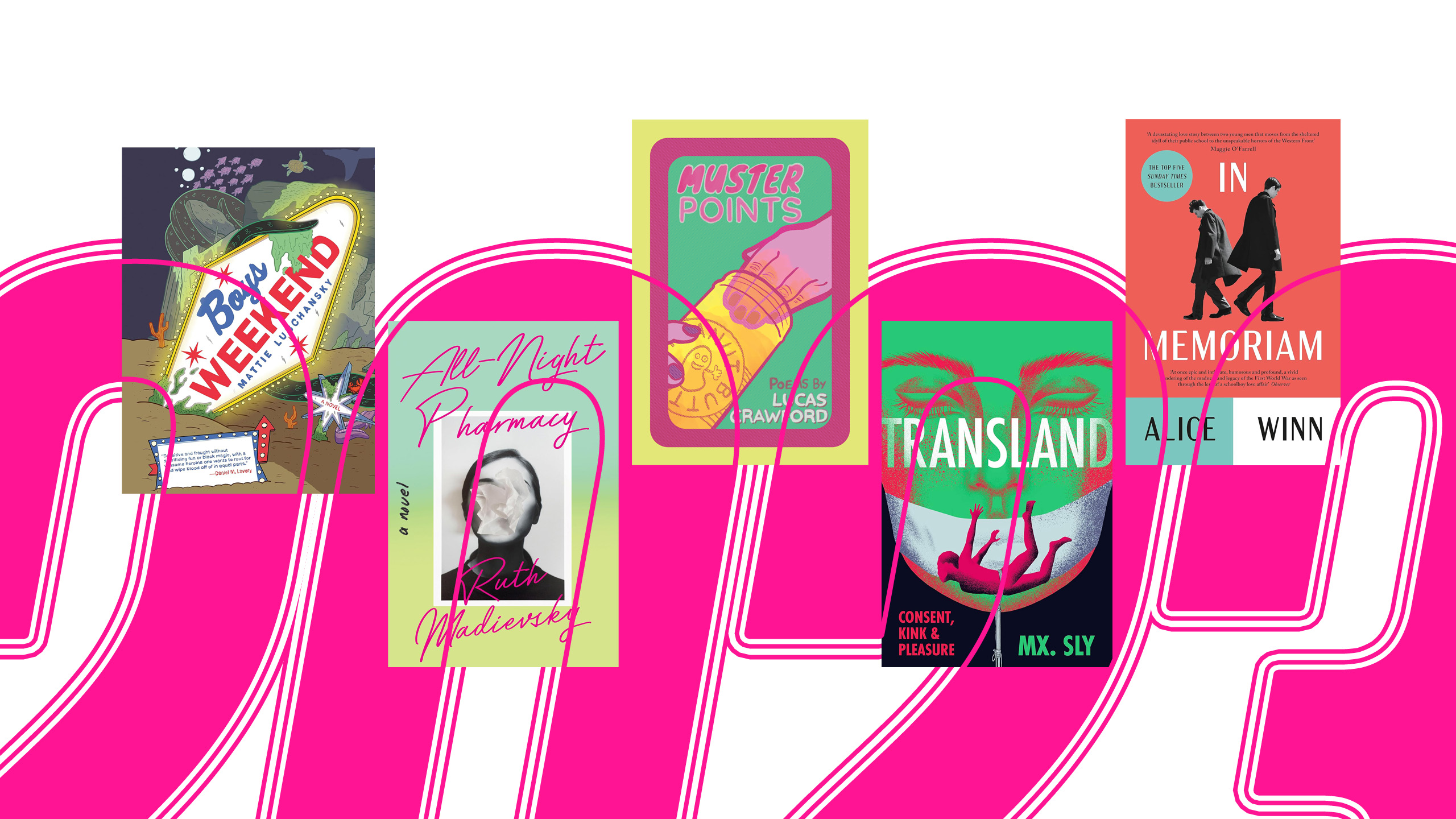
 Why you can trust Xtra
Why you can trust Xtra


